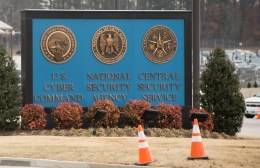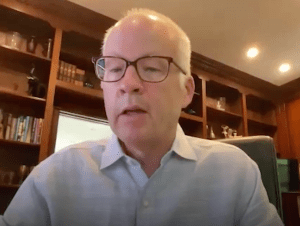Air Force aims to get more civilians into Cyber Excepted Service

Bringing more workers into the Cyber Excepted Service is a priority for the Air Force, the department’s new chief information officer said Monday.
The CES personnel management system is based on an authority Congress granted the Pentagon in 2016. It is intended to provide the Defense Department greater flexibilities and options for recruiting and retaining cyber professionals, including by using a market-based pay structure.
“It is important that we have a ready, skilled, resilient workforce. And how do we do that? Again, we do it collectively. So one, [through a] talent management strategy. How will we recruit, retain, reskill, upskill our workforce? We know that there’s a competition [for cyber talent] … So on the civilian side, what we’ve done is the Cyber Excepted Service. That is the one way that we will ensure that we can compete with the salaries in industry … [through] the target local market supplements,” Air Force CIO Venice Goodwine said at the annual DAFITC conference. “That is our way to make sure that we can close that gap, that income gap … We implemented it this last year and we’re now trying to make sure that we get more of our civilians into CES.”
In her current role, Goodwine leads the service’s enterprise information technology, data and artificial intelligence, and cybersecurity directorates. She also oversees career management initiatives for 10,000 IT and cyber civilian personnel, according to her Air Force bio.
Recruitment isn’t the only concern. The Air Force is also focused on retention and providing options for personnel to return to the department if they take a break from government service.
“It’s one thing to hire you. But I want to keep you. But I will tell you what’s a little different. I know as civilians we often come [and] we start our job and we want to do our 30 years and retire. I’m actually okay if you leave and go to industry. I want to … make a way for you to come back and not to lose what you’ve already contributed. So, let’s rethink how we do talent management. That’s our goal,” Goodwine said.
Goodwine’s comments came as the Defense Department is trying to transform the way it approaches human capital management with new and innovative approaches. Earlier this month, the DOD released its new cyber workforce strategy implementation plan to get after that.
There is currently a 24% vacancy rate in cyber positions across the department, according to Mark Gorak, principal director for resources and analysis for the DOD CIO.
While the uniformed services currently aren’t having problems attracting cyber talent to initially join their ranks, that isn’t the case for the civilian components of the force, he noted when the implementation plan was rolled out.
The Air Force isn’t alone among the military departments keen on better leveraging the Cyber Excepted Service. Army Secretary Christine Wormuth told lawmakers last year that her organization is exploring more ways to use CES authorities, as the Army still faces difficulties in competing for cyber talent.
“One of our challenges frankly is competing with the private sector,” she testified. “Everyone is looking for cyber experts, and in the private sector, they’re obviously well compensated. So that’s something I want to see us explore.”
Gen. Randy George, the nominee to be the next Army chief of staff, wants to use the CES to address shortfalls within the military’s cyber mission force — which includes 133 teams staffed by the services for U.S. Cyber Command to conduct cyber operations.
“While an [Office of the Secretary of Defense]-led force-generation study is ongoing to recommend cross-[Department of Defense] opportunities to correct readiness shortfalls across the Cyber Mission Force, the Army is looking to expand the application of the Cyber Excepted Service to provide expedited recruiting and more flexible retention options for civilians,” he wrote in a written response to lawmakers’ questions last month.
Goodwine’s remarks Monday were her first since being appointed the Air Force’s new CIO earlier this month.






